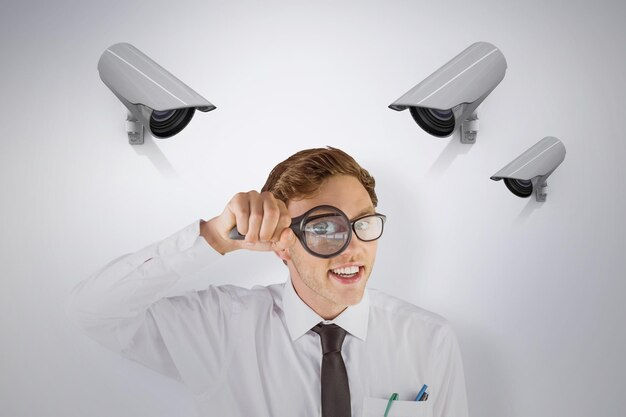Are CCTV Cameras an Invasion of Privacy? The Legal & Ethical Debate
- TRIGGER i
- Jul 5
- 2 min read

Introduction
In an increasingly surveilled world, CCTV cameras have become ubiquitous—from streets and offices to homes and shopping malls. While they undoubtedly enhance security and crime prevention, their widespread use has sparked a heated debate: Do surveillance cameras violate personal privacy?
This blog examines both sides of the argument, explores legal regulations in India and globally, and discusses how to balance security with privacy rights.
The Case FOR CCTV: Security Benefits
1. Crime Deterrence & Public Safety
Studies show CCTV reduces crime by up to 51% in monitored areas.
Helps law enforcement solve crimes faster using video evidence.
2. Protection for Businesses & Homes
Prevents theft, vandalism, and employee misconduct.
Provides 24/7 monitoring for vulnerable individuals (children, elderly).
3. Traffic & Crowd Control
Reduces road accidents and traffic violations.
Helps manage large public gatherings and protests.
The Case AGAINST CCTV: Privacy Concerns
1. Mass Surveillance & the "Big Brother" Fear
Constant monitoring creates a "surveillance society", where people feel watched at all times.
Governments and corporations could misuse footage for unethical tracking.
2. Data Leaks & Hacking Risks
Poorly secured cameras can be hacked, exposing private moments.
Facial recognition technology raises concerns about unauthorized profiling.
3. Workplace & Employee Privacy
Excessive workplace monitoring can lower morale and create a hostile environment.
Should employers have the right to monitor employees 24/7?
Legal Regulations on CCTV in India
India currently has no dedicated CCTV privacy law, but several regulations apply:
1. IT Act, 2000 (Section 43A & 72A)
Mandates data protection and penalizes unauthorized disclosure.
2. PDP Bill (Personal Data Protection Bill, 2019)
Proposed consent requirements for surveillance.
Requires legitimate purpose for data collection.
3. State-Specific Guidelines
Some states (e.g., Delhi, Maharashtra) have CCTV installation rules for public spaces.
4. Supreme Court Rulings (Right to Privacy, 2017)
The Puttaswamy Judgment declared privacy a fundamental right, impacting surveillance laws.
Global Privacy Laws Compared
Country | Key CCTV Privacy Laws |
EU (GDPR) | Strict consent & data protection rules |
USA | Varies by state; some ban facial recognition |
UK | Must display surveillance notices |
China | Heavy surveillance with little regulation |
How to Balance Security & Privacy?
✔ Transparency & Consent
Inform people when they’re being recorded (signage in public areas).
Get employee consent for workplace monitoring.
✔ Data Protection Measures
Encrypt footage to prevent hacking.
Limit access to authorized personnel only.
✔ Ethical Use of AI & Facial Recognition
Avoid racial/gender bias in surveillance tech.
Ban mass surveillance unless for national security.
✔ Regular Audits & Legal Compliance
Follow local laws and delete unnecessary footage.
The Verdict: Are CCTV Cameras an Invasion of Privacy?
✅ No, if used responsibly – When properly regulated, CCTV enhances safety without violating rights.
❌ Yes, if misused – Mass surveillance, hacking, and facial recognition abuse threaten privacy.
Final Thought:
The debate isn’t about banning CCTV but about regulating it wisely. A privacy-first approach can ensure security without sacrificing freedom.
What Do You Think?
Should governments restrict CCTV use?
Have you ever felt your privacy was violated by surveillance?
Share your views in the comments! 🔍📹



Comments